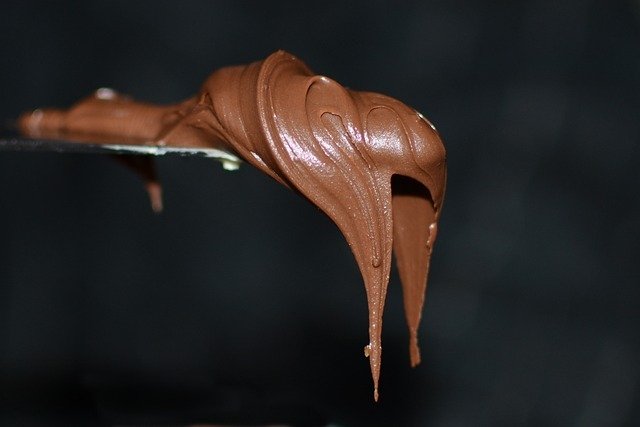Discover 5 surprising Nutella nutrition facts that reveal its hidden benefits and potential drawbacks for your diet.
A popular component in many kitchens worldwide is Nutella, a creamy, sweet dessert made with chocolate and hazelnuts. Understandably, people of all ages adore it given its silky texture and rich, chocolaty flavor.
People worldwide have fallen in love with and developed a taste for Nutella, a popular spread. Only some people are aware of the nutritious information concealed within this creamy treat, even though many like it for its exquisite flavor.
What is Nutella?
Nutella is a popular Italian chocolate hazelnut spread made by the Ferrero company. It’s a sweet and creamy paste made from a combination of ingredients, including:
- Hazelnuts: Roasted hazelnuts are the main ingredient in Nutella, giving it a rich, nutty flavor.
- Cocoa: Cocoa powder adds a deep, chocolatey flavor to Nutella.
- Sugar: Sugar is the primary sweetener in Nutella, making it a sweet and indulgent treat.
- Palm oil: Palm oil is used to give Nutella its smooth and creamy texture.
- Skim milk powder: Skim milk powder adds a touch of milkiness to Nutella.
- Emulsifier: An emulsifier like soy lecithin is used to blend the ingredients and create a smooth consistency.
The exact recipe for Nutella is a trade secret, but these ingredients are the main components that make up this beloved spread. Nutella is often used as a topping for toast, crackers, or fruit, and it’s also a popular ingredient in baking and cooking.
Fun fact: Nutella was created in the 1960s by Pietro Ferrero, the founder of Ferrero, as a way to extend the shelf life of hazelnuts. The original recipe was called “Gianduja,” named after a famous Italian carnival character. Over time, the recipe was tweaked and renamed Nutella, which has become a global phenomenon with a devoted fan base.
Don’t Replace It.
Because Nutella is frequently referred to as a hazelnut spread, it is generally connected with nut kinds of butter. Nutella shouldn’t be used as a replacement for nut butter, even though it does include a small quantity of hazelnut paste. Nut kinds of butter, such as cashews, almonds, and peanut butter, are likewise heavy in fat and calories.
But when it comes to nutrition, real nut kinds of butter are considerably superior to Nutella.
Natural nut kinds of butter simply contain nuts and occasionally salt, although some nut kinds of butter do contain oils and added sweeteners.
For example, a 2-tablespoon (32-gram) serving of natural almond butter contains.
Calories: 200
Fat: 19 grams
Protein: 5 grams
Sugars: Less than 1 gram
Manganese: 38% of the RDI
Magnesium: 24% of the RDI
Phosphorus: 16% of the RDI
Copper: 14% of the RDI
Riboflavin (Vitamin B2): 12% of the RDI
Calcium: 8% of the RDI
Folate: 6% of the RDI
Iron: 6% of the RDI
Potassium: 6% of the RDI
Zinc: 6% of the RDI
Discover 5 Surprising Nutella Nutrition Facts
Nutella’s Sugar Content: A Sweet Surprise
High Sugar Levels:
One of the most striking aspects of Nutella’s nutrition is its sugar content.
A two-tablespoon serving contains about 21 grams of sugar.
This is over half of the daily recommended sugar intake for adults.
Comparative Sugar Content:
To put it in perspective, this amount of sugar is equivalent to roughly five teaspoons of sugar.
This sugar content is similar to what you’d find in a typical candy bar.
Impact on Health:
High sugar consumption can lead to a variety of health issues such as weight gain, increased risk of diabetes, and dental problems.
Being aware of Nutella’s sugar content is crucial for maintaining a balanced diet.
Excessive sugar intake is linked to inflammation and can affect mood and energy levels.
Hidden Fat Content: More Than Meets
Caloric Density:
Nutella is rich in fats, contributing to its creamy texture.
A two-tablespoon serving contains around 11 grams of fat.
Type of Fats:
Out of these, 3.5 grams are saturated fats, which are known to contribute to heart disease when consumed in excess.
Saturated fats can raise LDL cholesterol levels in the blood, increasing the risk of heart disease and stroke.
Healthy Fats:
Nutella contains some healthy fats from hazelnuts.
These fats can help in reducing bad cholesterol levels and promote heart health when consumed in moderation.
Monounsaturated fats from hazelnuts are beneficial for cardiovascular health.
Nutella is Classified as a Dessert Topping
- Despite its popularity as a breakfast spread, Nutella is currently classified as a dessert topping.
- Ferrero, the company behind Nutella, has been pushing to have it reclassified as a breakfast topping, similar to jam.
- If this change happens, the serving size on the nutrition label would decrease from 2 tablespoons to 1 tablespoon, which could lead to consumers underestimating its calorie and sugar content.
Nutella’s Ingredients: A Blend of Surprises
Hazelnuts as the Star:
Hazelnuts are the primary ingredient in Nutella, providing essential vitamins and minerals.
Hazelnuts are rich in vitamin E, magnesium, and calcium, which are important for overall health.
Other Ingredients:
Besides hazelnuts, Nutella contains sugar, palm oil, cocoa solids, skimmed milk powder, whey powder, lecithin (an emulsifier), and vanillin (an artificial flavor).
Palm oil is a source of saturated fats and is often criticized for its environmental impact.
Ingredient Balance:
While the spread offers some nutritional benefits from its ingredients, the high sugar and fat content may outweigh these benefits if consumed in large quantities.
The presence of artificial flavors and emulsifiers might be a concern for those seeking natural products.
Nutella is High in Fat and Calories
- With 200 calories per 2 tablespoon serving, Nutella is a calorie-dense food that can contribute to weight gain if consumed excessively.
- The high amount of fat in Nutella, particularly from palm oil, makes it a treat that should be savored in small amounts.
- Eating one or two servings of Nutella every day could lead to weight gain over time, especially for children.
Nutella and Nutritional Value
Micronutrient Content:
Despite its high sugar and fat content, Nutella provides some essential micronutrients.
Hazelnuts are a good source of vitamin E and B vitamins.
Mineral Content:
It also contains minerals like magnesium, which supports muscle and nerve function.
Calcium in Nutella is vital for bone health.
Nutrient Absorption:
The fats in Nutella can aid in the absorption of fat-soluble vitamins.
However, the high sugar content can negate some of these benefits if not consumed in moderation.
Combining Nutella with nutrient-dense foods like fruits can enhance its nutritional value.
Nutella Can Be Part of a Healthy Diet
- While Nutella is undoubtedly a treat, it can be part of a healthy diet if consumed in moderation.
- By pairing Nutella with whole-grain toast or fruit, you can create a balanced snack that satisfies your sweet tooth.
- Just remember to stick to the recommended serving size and don’t overdo it – after all, everything in moderation is key to a healthy lifestyle.
FAQs
Q: Is Nutella healthy to eat every day?
A: Nutella contains high levels of sugar and fat, so it should be consumed in moderation. Eating it daily can lead to excessive calorie intake and potential health issues.
Q: How can I make Nutella healthier?
A: Try using it as a thin spread on whole-grain bread or pairing it with fruit to add fiber and nutrients to your snack.
Q: Are there any healthier alternatives to Nutella?
A: Yes, there are several nut spreads available that have lower sugar content and healthier fats. Look for options that use natural sweeteners and avoid palm oil.
Q: Does Nutella contain any essential nutrients?
A: Nutella provides some essential vitamins and minerals from hazelnuts, such as vitamin E and magnesium, but these benefits are offset by its high sugar and fat content.
Q: Can Nutella fit into a balanced diet?
A: Yes, Nutella can fit into a balanced diet if consumed in moderation. Be mindful of portion sizes and try to balance it with other nutrient-dense foods.
THE BOTTOM LINE:
Even if it might not be the healthiest food choice available, Nutella can nevertheless be included in a balanced diet. With awareness of its high sugar and fat content, you may enjoy this tasty spread without sacrificing your health objectives.
Feel free to indulge in a little Nutella on your toast and enjoy the rich, chocolaty flavor, but remember to do it sparingly!
A tasty delicacy with a complicated nutritional profile is Nutella. Even though the hazelnut content provides certain advantages, this dish is best consumed in moderation due to its high sugar and fat content.











